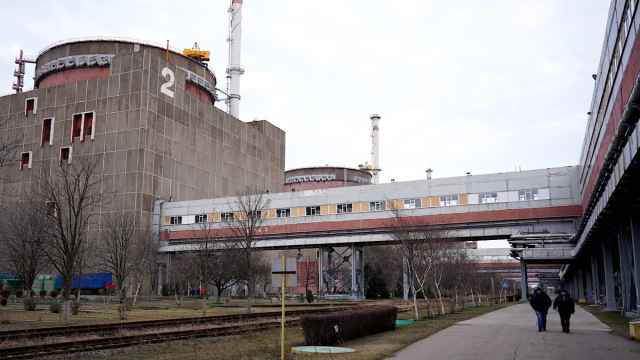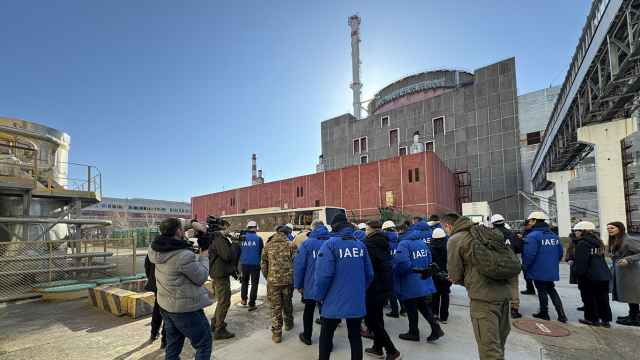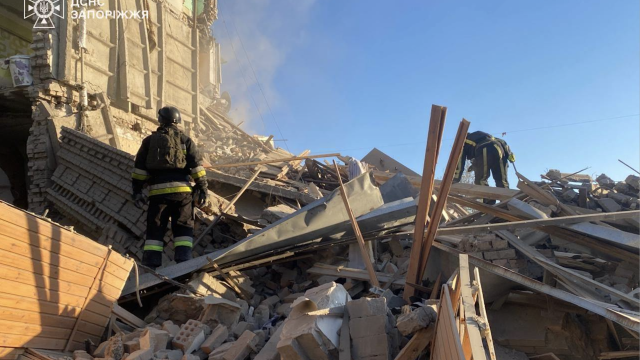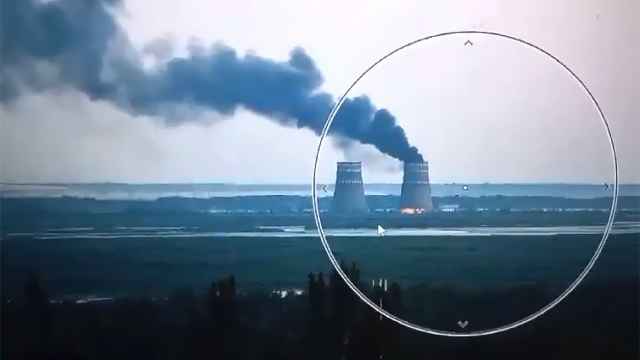The 10th blackout at the Zaporizhzhia Nuclear Power Plant — now lasting more than 10 days — has stirred deep concern and debate among experts, policymakers and the public alike. All ask the same question: Who caused it, and why?
Major international outlets have taken note. The Guardian, citing multiple experts, reported that “Russia deliberately disabled the external power line … and satellite images of the damaged section showed no signs of Ukrainian shelling, which, according to Moscow, prevents repair work.”
According to our analysis at Bellona, “the risk of a nuclear or radiological accident is not especially high — despite the danger and instability of the situation.” But we are also warning that “this shutdown may serve as cover for Russia’s plan to reconnect the Zaporizhzhia plant to its own power grid.”
The incident raises several key questions that remain unanswered. If Russia’s intention is indeed to connect the Zaporizhzhia plant to its own power grid, what is the point? Without an agreement with Ukraine, it would be virtually impossible to bring the reactors online and actually generate electricity.
As long as the war continues, neither the power system Russia is trying to build nor any of the other safety-critical systems of the nuclear plant can operate under constant shelling. And the shelling, inevitably, will continue.
Even in the unlikely event that Ukraine were to give its consent, the reactors could not be restarted within the next year or two for purely technical reasons. The process would require refueling the cores, conducting a full inspection of all systems, restoring — or even rebuilding — cooling infrastructure, reestablishing supply chains, revising technical documentation, retraining staff and more.
Some experts speculate that the move may be preemptive propaganda in order to later accuse Ukraine of “nuclear sabotage” if it attacks the newly connected power lines. But after over three years of full-scale war, such accusations are unlikely to change international opinion or policy.
In short, it remains unclear what Moscow hopes to achieve by provoking the current blackout at Zaporizhzhia.
The timing of the blackout has raised some eyebrows. It occurred just as Moscow was hosting the lavish World Atomic Week forum — a high-profile celebration of the 80th anniversary of Russia’s nuclear industry, attended by senior officials from the International Atomic Energy Agency (IAEA), including Director General Rafael Grossi.
Grossi arrived in Moscow as a candidate for UN Secretary-General — a fact he himself confirmed upon landing. As a permanent member of the UN Security Council, Russia holds direct influence over such appointments, giving Grossi every incentive to maintain cordial relations in Moscow.
What Grossi, Rosatom chief Alexey Likhachev, and President Vladimir Putin discussed behind closed doors remains unknown. But on the eve of the forum, Russia’s Foreign Ministry suddenly proposed formally listing the Zaporizhzhia plant among Russia’s “peaceful” nuclear facilities and placing it under IAEA safeguards on that basis.
During his speech at the forum, Grossi went out of his way to praise the “achievements of Russia’s nuclear industry abroad,” and invited Moscow to attend the first World Nuclear Energy Conference in Vienna this December.
It is impossible to say whether Grossi’s visit was connected to the events at Zaporizhzhia. Yet the coincidence is difficult to ignore. Why did the blackout occur precisely during Russia’s biggest nuclear industry celebration — with foreign delegations and the IAEA leadership in attendance at a moment when Moscow most wanted to project calm, competence and control?
Normally, a hazardous incident like a nuclear-plant blackout would call for silence and damage control. Instead, the event unfolded amid fanfare, with Russian officials projecting complete composure — as if everything were proceeding according to a carefully scripted plan.
Adding to the intrigue, IAEA Deputy Director General Mikhail Chudakov remarked during the forum that “nuclear power plants are excellent in every way — but they are not protected from war.”
It remains unclear what Chudakov meant — perhaps merely that nuclear facilities should not be targeted. But that statement rings hollow given that Russia, the very state he represents within the IAEA, has attacked a nuclear power plant.
These coincidences and contradictions underscore what we at Bellona have repeatedly warned: for much of the international community — including the IAEA — the events at Zaporizhzhia are becoming normalized. The armed seizure of civilian nuclear facilities has not brought any meaningful consequences for the aggressor.
That normalization was on full display when Grossi, amid a nuclear power plant blackout apparently engineered by Russia, attended a celebration hosted by the aggressor state itself — praising Rosatom’s foreign operations and his meeting with Putin, while solemnly noting that “the situation at Zaporizhzhia remains unstable.”
Meanwhile, an increasing number of United Nations member states argue that the current global security architecture is obsolete. The UN Security Council, paralyzed by the veto powers of its five permanent members — including an aggressor state — has proven unable to respond effectively.
The question that remains is whether the likely next Secretary-General of the UN understands that dynamic.
A Message from The Moscow Times:
Dear readers,
We are facing unprecedented challenges. Russia's Prosecutor General's Office has designated The Moscow Times as an "undesirable" organization, criminalizing our work and putting our staff at risk of prosecution. This follows our earlier unjust labeling as a "foreign agent."
These actions are direct attempts to silence independent journalism in Russia. The authorities claim our work "discredits the decisions of the Russian leadership." We see things differently: we strive to provide accurate, unbiased reporting on Russia.
We, the journalists of The Moscow Times, refuse to be silenced. But to continue our work, we need your help.
Your support, no matter how small, makes a world of difference. If you can, please support us monthly starting from just $2. It's quick to set up, and every contribution makes a significant impact.
By supporting The Moscow Times, you're defending open, independent journalism in the face of repression. Thank you for standing with us.
Remind me later.








